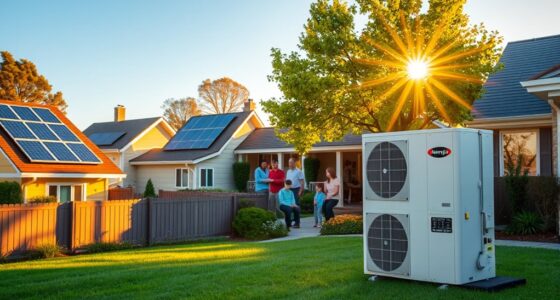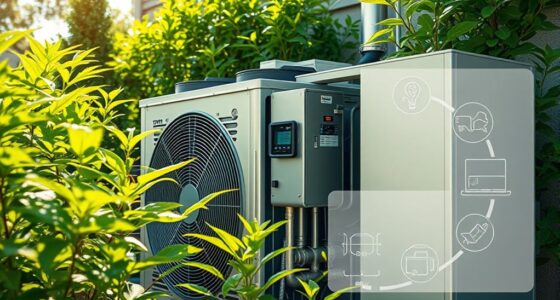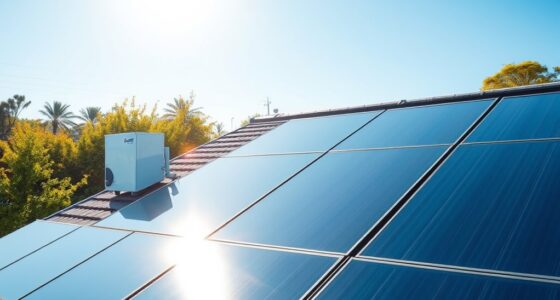Fed up with the high costs and environmental damage of conventional heating and cooling systems? We have a solution that can help!
Geothermal heat pumps are a renewable energy marvel that can provide efficient heating and cooling all year round.
In this article, we will delve into the basics of geothermal heat pumps, their advantages, how they work, and the environmental benefits they offer.
Get ready to explore the innovative world of geothermal energy!

Key Takeaways
- Geothermal heat pumps utilize the earth’s constant temperature for efficient heating and cooling.
- Geothermal energy offers lower operating costs and requires less maintenance compared to traditional systems.
- Geothermal heat pumps reduce environmental impact by utilizing renewable energy sources and reducing greenhouse gas emissions.
- Conducting a property assessment and engaging professional technicians are crucial steps for installing a geothermal heat pump system.
The Basics of Geothermal Heat Pumps
Now let’s delve into the basics of geothermal heat pumps, starting with how they work.
Geothermal heat pump technology utilizes the constant temperature of the earth to provide efficient heating and cooling.
These systems tap into the earth’s natural thermal energy, transferring it to and from a building to maintain a comfortable indoor climate.
By utilizing a series of pipes buried underground, geothermal heat pumps extract heat from the earth during the winter and transfer it indoors.
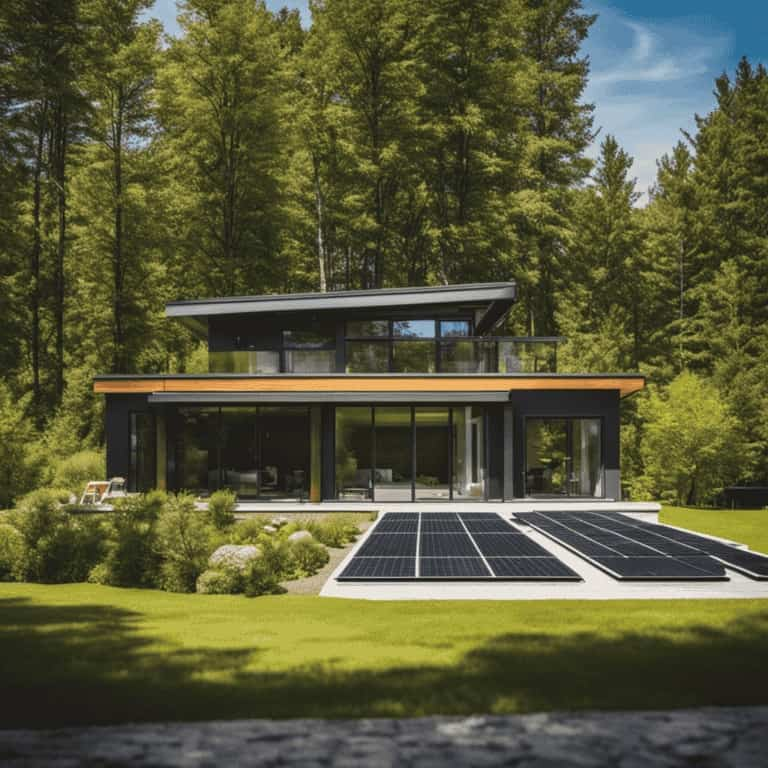
Conversely, during the summer, the system removes heat from the building and disperses it into the cooler earth.
This technology harnesses the renewable and sustainable energy of the earth, making it an innovative and eco-friendly solution for heating and cooling.
Now, let’s explore the advantages of geothermal energy for heating and cooling.
Advantages of Geothermal Energy for Heating and Cooling
What are the advantages of geothermal energy for heating and cooling?

Geothermal energy offers several key advantages in terms of efficiency and cost effectiveness. When it comes to efficiency, geothermal heat pumps can deliver up to 400% efficiency, meaning that for every unit of electricity used to power the system, four units of heat are produced. This level of efficiency is far superior to traditional heating and cooling systems.
Additionally, geothermal energy is a cost-effective solution in the long run. Although the initial installation costs may be higher compared to conventional systems, geothermal systems have lower operating costs and require less maintenance, resulting in significant savings over time.
These advantages make geothermal energy a sustainable and economically viable option for heating and cooling needs.
Now, let’s delve into how geothermal heat pumps work.
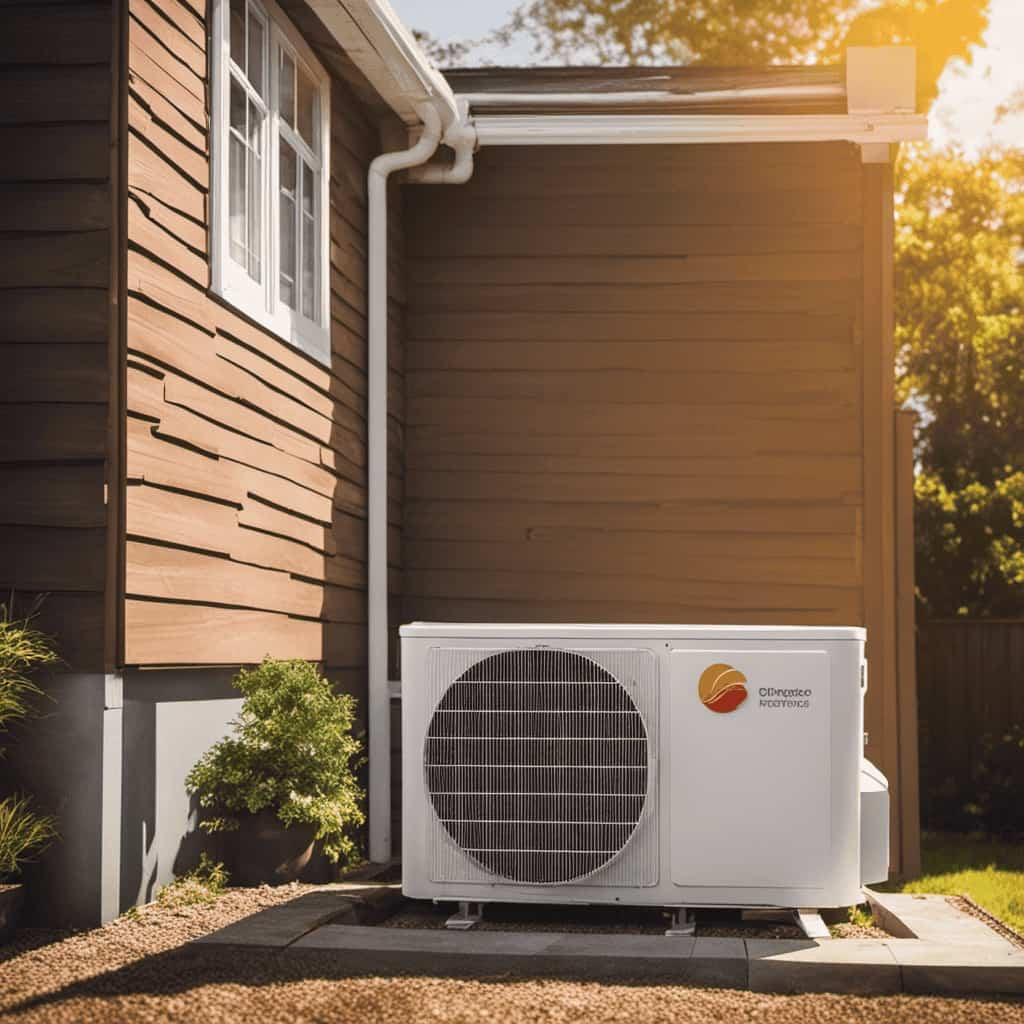
How Geothermal Heat Pumps Work
Geothermal heat pumps use the natural heat stored in the earth to provide efficient heating and cooling for buildings. This innovative technology harnesses the constant temperature beneath the earth’s surface to transfer heat to or from a building, depending on the season.
Here’s how geothermal heat pumps work:
Underground loops: These loops, typically made of high-density polyethylene, are buried beneath the ground and filled with a mixture of water and antifreeze. They act as heat exchangers, absorbing heat from the ground in winter and dissipating heat into the ground in summer.
Heat pump unit: This unit, located inside the building, circulates the fluid through the underground loops. It extracts heat from the ground during winter and releases it inside the building. In summer, it removes heat from the building and transfers it back into the ground.

Compressor: The compressor increases the temperature of the extracted heat, making it suitable for heating the building.
Distribution system: The heated or cooled air is distributed throughout the building using a network of ducts or pipes.
Geothermal heat pump technology offers exceptional efficiency, as it utilizes renewable energy sources and reduces reliance on fossil fuels. Its high efficiency levels make it an attractive option for those seeking sustainable heating and cooling solutions.
Environmental Benefits of Geothermal Heat Pumps
By utilizing geothermal heat pumps, we can significantly reduce our environmental impact while still enjoying efficient heating and cooling in our buildings. Geothermal heat pumps tap into the Earth’s natural heat and use it to regulate indoor temperatures. This renewable energy solution offers several environmental benefits.

Firstly, geothermal heat pumps are highly energy efficient. They can produce up to four units of heat for every unit of electricity used, resulting in significant energy savings. This increased energy efficiency translates into lower greenhouse gas emissions and reduced reliance on fossil fuels.
Additionally, geothermal heat pumps have a longer lifespan compared to traditional heating and cooling systems, leading to fewer material and energy resources being used for replacements. The cost savings achieved through reduced energy consumption and maintenance expenses further add to the environmental benefits of geothermal heat pumps.
Considerations for Installing a Geothermal Heat Pump System
When considering installing a geothermal heat pump system, we should carefully evaluate our property’s suitability for geothermal technology. Here are some key considerations to keep in mind during the installation process:
Property Assessment: Conduct a thorough assessment of the property to determine if it has the necessary space for the installation of ground loops or a vertical borehole system.

Ground Conditions: Evaluate the soil composition and thermal conductivity to ensure optimal heat transfer and system efficiency.
Cost Analysis: Conduct a comprehensive cost analysis that includes upfront installation costs, potential tax incentives, and long-term energy savings to determine the financial feasibility of the geothermal heat pump system.
Contractor Selection: Choose a qualified and experienced contractor who specializes in geothermal installations to ensure proper system design, installation, and maintenance.
Frequently Asked Questions
Are Geothermal Heat Pumps Only Suitable for New Construction or Can They Be Retrofitted Into Existing Homes?
Geothermal heat pumps can be retrofitted into existing homes, but there are limitations. Retrofitting costs vary depending on factors such as the size of the home and the type of ground loop system needed. A cost-effectiveness analysis should be conducted to determine feasibility.

How Long Does It Take for a Geothermal Heat Pump System to Pay for Itself in Terms of Energy Savings?
In terms of energy savings payback, a cost effectiveness analysis is needed to determine how long it takes for a geothermal heat pump system to pay for itself.
Can a Geothermal Heat Pump System Be Used in Areas With Limited Access to Groundwater?
Yes, a geothermal heat pump system can be used in areas with limited access to groundwater. However, it is important to consider geothermal heat pump efficiency and alternative heating options in such cases.
What Kind of Maintenance Is Required for a Geothermal Heat Pump System?
Geothermal heat pump maintenance involves regular check-ups, filter cleaning, and inspection of the system’s components. Troubleshooting may be required for issues like loss of heating or cooling. It’s important to address any problems promptly for optimal performance.
Are There Any Government Incentives or Tax Credits Available for Installing a Geothermal Heat Pump System?
Yes, there are government incentives and tax credits available for installing a geothermal heat pump system. These incentives and credits can help offset the initial costs and make the system more affordable for homeowners.

How Do Solar Heat Pumps Compare to Geothermal Heat Pumps in Terms of Renewable Energy?
Solar heat pumps in renewable energy provide an efficient and eco-friendly alternative to geothermal heat pumps. While both systems utilize renewable sources, solar heat pumps harness the power of the sun. They are easier to install and maintain, enabling cost savings. However, geothermal heat pumps have a higher efficiency and can provide consistent heating and cooling regardless of climate conditions. Ultimately, deciding between the two depends on geographical location, budget, and individual needs.
Conclusion
In conclusion, geothermal heat pumps are a renewable energy solution that can provide efficient heating and cooling for homes and buildings. By harnessing the Earth’s natural heat, these systems offer numerous advantages, such as lower energy costs and reduced carbon emissions.
Installing a geothermal heat pump system requires careful consideration, but the environmental benefits make it a worthwhile investment. So, why not tap into the Earth’s hidden warmth and embrace a greener future with geothermal heat pumps?


